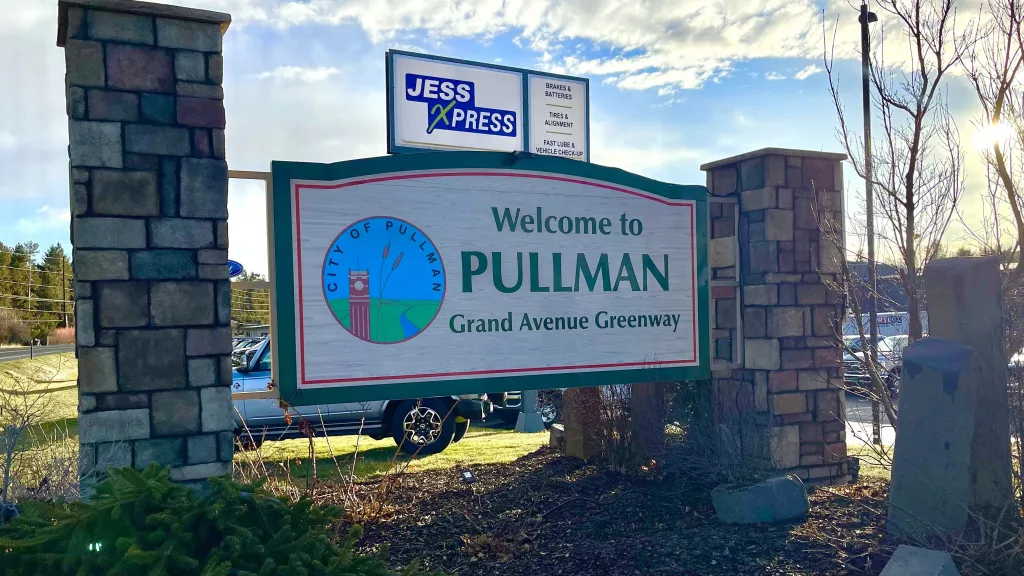PULLMAN, WA – Rural activists from over a dozen small communities were recently challenged by Deb Brown, author of “Save Your Small Town,” who gave her advice bluntly: “Kill your committees. Work by project around your goals.”
The occasion was a recent meeting of Inland Northwest Partners in the new community center in Malden, a small town in eastern Washington state. INWP is a 501(c)(3) company dedicated to building a strong economic base across a two-state area encompassing eastern Washington and north Idaho.
Malden Mayor Dan Harwood set the tone for the day.
“No reason to be thinking small,” he said, “because if you do, that’s what you’re going to get.”
Brown emphasized the importance of making room for new volunteers.
“You can’t keep relying on the STP – the same 10 people – to get it done,” she observed.
Dropping committees is one way to address the challenge of attracting busy moms and dads who chase youth sports. According to Brown, they may be less likely to commit to a three-year committee assignment but ready to say yes to two hours on a project.
She recommended identifying a big idea to build a crowd, then taking a simple first step. In one small town, revitalization started with cleaning sidewalks. Instead of starting a committee, one shopkeeper started the movement on social media with hashtags #Isweptmine and #cleanyourownsidewalkday.
Downtown decline is one of the top four persistent concerns in the annual Survey of Rural Challenges. The other three are youth outmigration, workforce shortages, and small business marketing.
The survey is a project of SaveYour.Town, co-founded by Brown and her colleague Becky McCray in 2015. Survey respondents come from small towns in the United States, Canada, Australia, New Zealand and the United Kingdom.
In addition to the persistent challenges, rising concerns for rural communities mirror those in urban areas, with a housing crisis and a lack of childcare mentioned. The growth of big box and online retailing has also left small businesses struggling to find their niche.
“Communities open to new ideas are ready to thrive,” Brown noted.
Many rural downtowns have buildings sitting unused. Many buildings are in no condition to be of use.
Brown launched a new idea as director of the Webster City Area Chamber of Commerce in Iowa after 2,000 jobs disappeared with the North American Free Trade Agreement, which was in effect from Jan. 1, 1994, until the U.S.-Mexico-Canada Agreement replaced it on July 1, 2020.
She organized the “Tour of Empty Buildings” and attracted 44 people from within and outside the community to visit and network. Over the next 18 months, 10 of the 14 empty buildings were filled.
When the town of Malden was swept by wildfire in 2021, it lost its empty buildings. Harwood described how the new public facilities and infrastructure were rebuilt following the disaster, and said the town now “has everything but houses.” Only 29 of the 67 houses lost in the Babb Road Fire have been rebuilt.
For Malden, rebuilding has been challenging for the five families still living in RVs five years later. The small plats typical of small towns and older urban neighborhoods are not large enough for typical American houses. New housing has also been stalled by outside speculation on the now-empty lots, given the town’s commuting proximity to Spokane and the campuses of Eastern Washington University and Washington State University.
The gathering ended with Brown leading breakout groups through the “Idea Friendly Method” she developed with McCray.
Several tackled the housing issue. One attendee pointed out that tiny houses on foundations could be built under Appendix Q of the building code as an affordable option. Unfortunately, according to a Malden city councilman, Whitman County restricts tiny houses to designated mobile home parks.
In keeping with the “Idea Friendly Method,” the rural activists were encouraged to gather a crowd, build connections, and take small steps.
“It was great to have Deb there in a small town speaking to our rural communities,” INWP Executive Director KayDee Gilkey observed.
“This is one of [the] strongest presentations we’ve done, and having it in Malden made it even more meaningful,” Gilkey said. “People left with ideas to take home to their communities, and that’s a win.”
